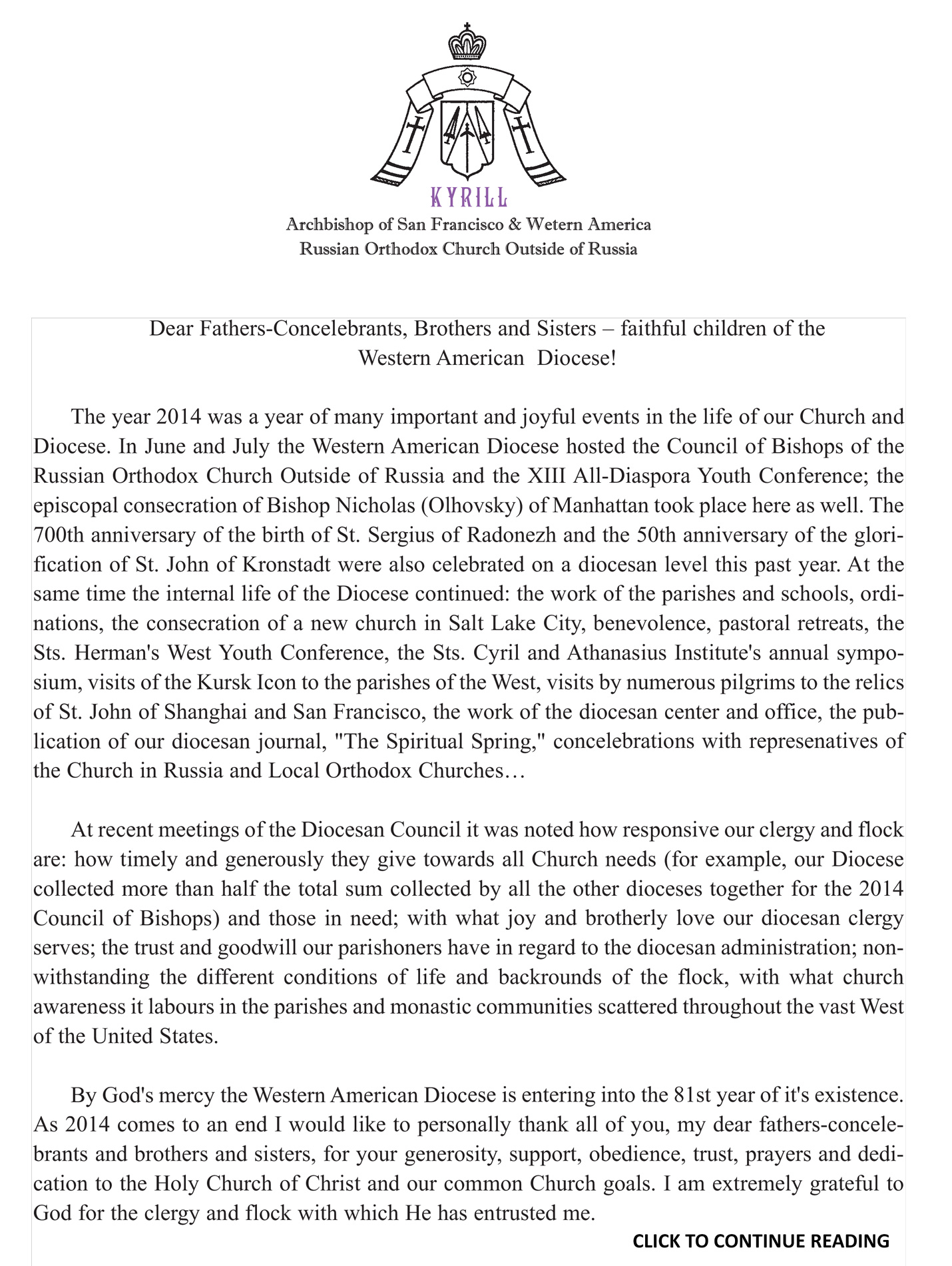Orthodox Articles
30th Anniversary of our Metropolitan Hilarion’s Episcopal Consecration
Kursk Root Icon and New Website (DRAFT)
The Kursk Root Icon is a treasure of our Orthodox Faith.
Here are some links to explore as we anticipate receiving the icon and the Akathist service this Thursday at 6pm.
Also, please check out our newly designed website at www.russianorthodoxlasvegas.org.
With love and prayers,
Fr. Panteleimon
Preparation for the Sacrament of Holy Confession
Before confession one should attempt to recall all the sins which one has committed voluntarily or involuntarily. One must attentively reexamine one’s life in order to recall not only those sins committed since the last confession, but also those which have not been confessed through forgetfulness. Then, with compunction and a contrite heart, approach the Cross and the Gospel and begin the confession of your sins.
- Confess your sins honestly, remembering that you open them not to a man, but to God Himself. God knows your sins already and only wants your admission of them. You should not be embarrassed before your spiritual father: he is a person just as you are. He knows human shortcomings well, man’s tendency towards sin. For this reason your spiritual father cannot be your terrible judge at confession. Is the reason that you are embarrassed before your spiritual father that you are afraid to lose his good opinion of you? On the contrary, your spiritual father will have all the more love for you when he sees your open, honest confession. Furthermore, if you are afraid to reveal your sins before just one person, your spiritual father, how will you overcome your embarrassment when you appear at God’s Last Judgment? There, all your sins which you have not confessed will be opened before God Himself, the Angels and all the people.
- Be specific when you confess, listing all your sins separately. St. John Chrysostom says: “One must not only say: I have sinned, or I am sinful, but one must declare each type of sin.” “The revelation of sins,” says St. Basil the Great, “is subject to the same law as the Declaration of physical ills…” The sinner is spiritually ill, and the spiritual father is the physician or healer. It stands to reason that one must confess or tell about one’s sins in the same way as one who is physically ill describes the symptoms of his illness to a physician from whom he expects to receive healing.
- Do not mention anyone else during confession, i.e. do not complain about anyone – what sort of confession is this? It is not confession, but judgement and a new sin.
- Do not attempt to justify yourself in any way during confession: blaming weakness, custom, etc. The more one justifies himself during confession, the less one is justified by God. The more one denounces, judges and accuses oneself, the more one is justified in the eyes of God.
- When questioned by your spiritual father, do not say: “I can’t remember, maybe I committed that sin.” God commanded us to always remember our sins. In order not to justify ourselves with not remembering, we must confess our sins as often as possible. Those who, because of carelessness, confess and take communion infrequently, and because of this forget their sins, have no one to blame but themselves. They cannot hope for remission of the sins which they failed to confess. Thus, it is imperative that we try to recall all our sins. When someone owes us something we are sure to remember this. Yet we forget our own debts before God! Does this not reveal an utter absence of concern for our soul on our part?
- Unless asked by your spiritual father, do not list the sins you have not committed or things you have not done. Doing this, you liken yourself to the Pharisee of the Gospel. You do not confess your sins, but boast, thereby increasing your judgment.
- We must confess with sorrow and a contrite heart the sins by which we have grieved our Lord God. It is not good that many tell of their sins matter-of-factly, without any remorse. They speak as though they are engaged in some casual conversation. What is worse, some even allow themselves to laugh during confession. These are all signs of unrepentedness. Confessing in this manner, we do not cleanse ourselves of our sins, but rather increase them.
- Finally, confess your sins with faith in Jesus Christ, with hope in His mercy. Only with faith in Jesus Christ and hope in Him can we receive forgiveness of our sins. Without faith, we cannot receive remission. An example of this is Judas the traitor—who was remorseful of what he did, but did not have faith in Jesus, no hope in His mercy, and thus ended his own life.


